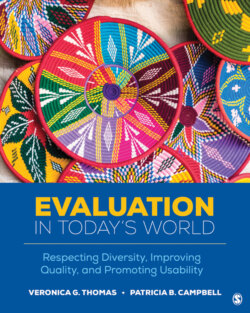Читать книгу Evaluation in Today’s World - Veronica G. Thomas - Страница 55
На сайте Литреса книга снята с продажи.
The Study Ends and Reparation Begins
ОглавлениеThe advisory panel concluded that the Tuskegee Study was “ethically unjustified”—the knowledge gained was sparse when compared with the risks the study posed for its subjects. In October 1972, the panel advised stopping the study at once. A month later, the Assistant Secretary for Health and Scientific Affairs announced the end of the Tuskegee Study.
In the summer of 1973, a class-action lawsuit was filed on behalf of the study participants and their families. In 1974, a $10 million out-of-court settlement was reached. As part of the settlement, the U.S. government promised to give lifetime medical benefits and burial services to all living participants. The Tuskegee Health Benefit Program (THBP) was established to provide these services. In 1975, wives, widows and offspring were added to the program. In 1995, the program was expanded to include health as well as medical benefits. The Centers for Disease Control and Prevention was given responsibility for the program, where it remains today in the National Center for HIV/AIDS, Viral Hepatitis, STD, and TB Prevention. The last study participant died in January 2004. The last widow receiving THBP benefits died in January 2009. There are 11 offspring currently receiving medical and health benefits.
Source: National Center for HIV/AIDS, Viral Hepatitis, STD, and TB Prevention, Centers for Disease Control and Prevention, U.S. Department of Health and Human Services. (2020, March 20). U.S. Public Health Service syphilis study at Tuskegee: The Tuskegee timeline. Retrieved from https://www.cdc.gov/tuskegee/timeline.htm
Now, reflect on and discuss the interplay of ethics and social justice issues raised in the Tuskegee Syphilis Study.
